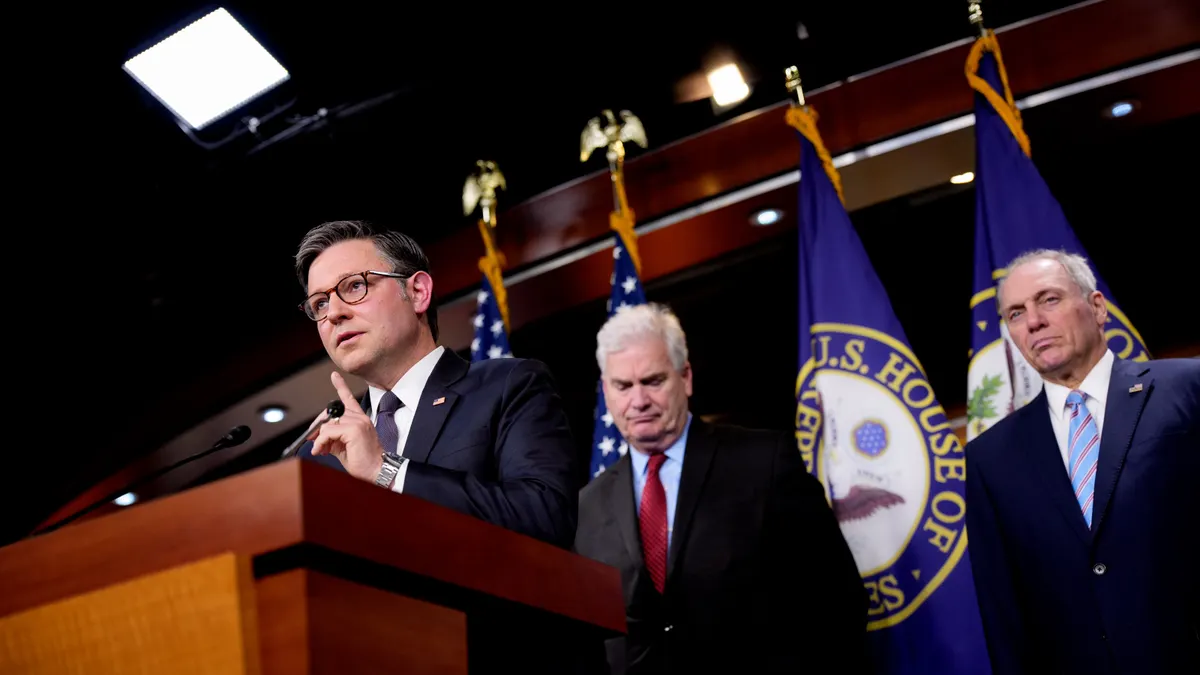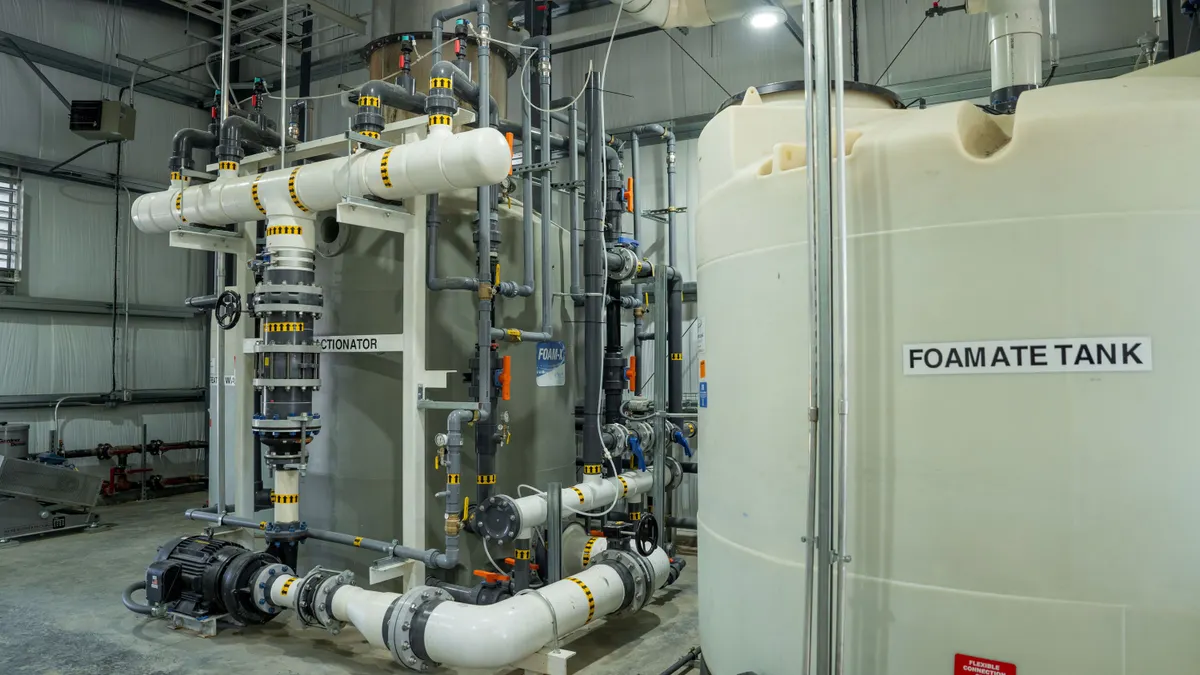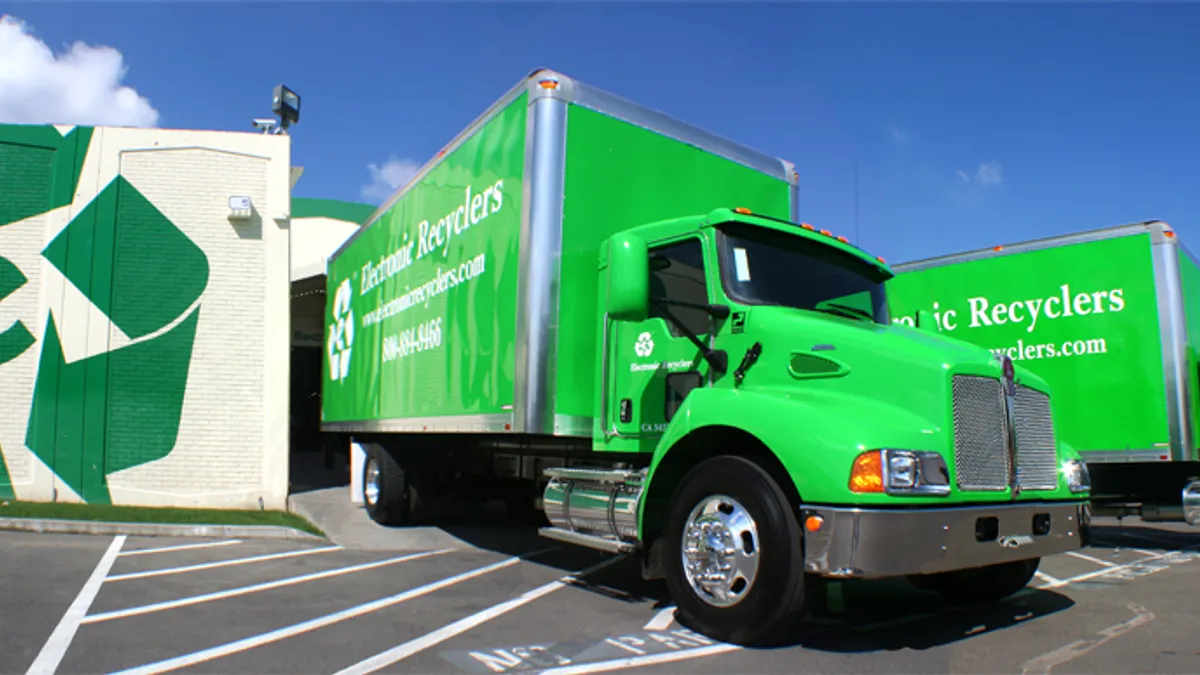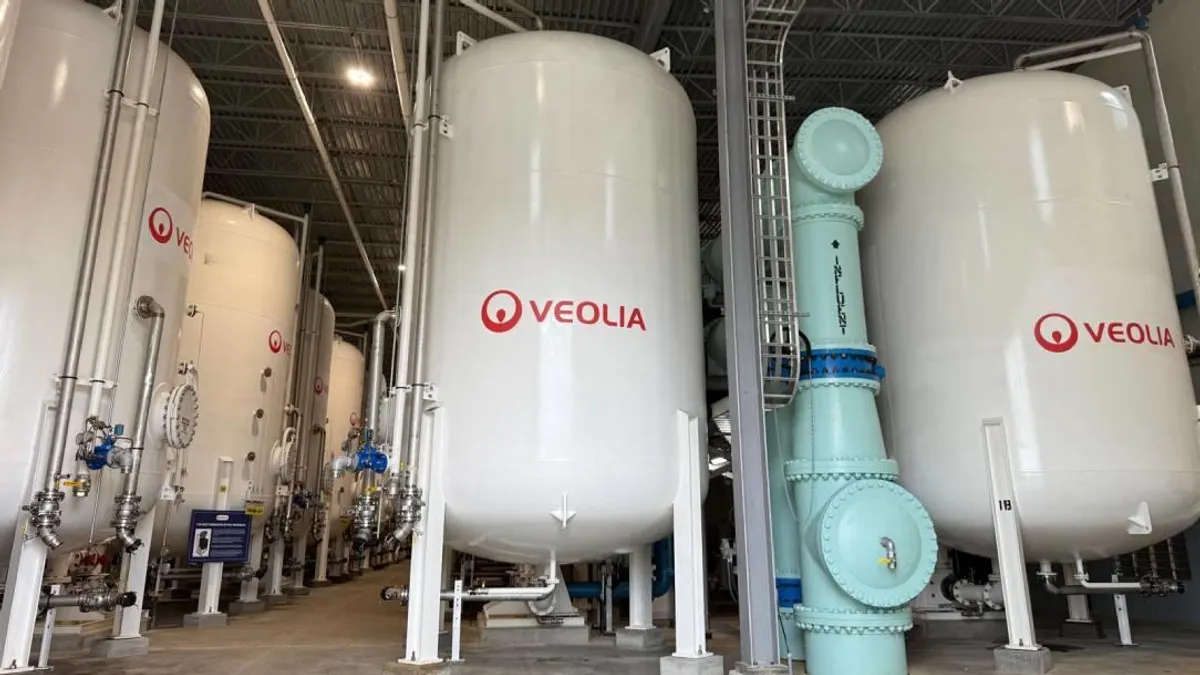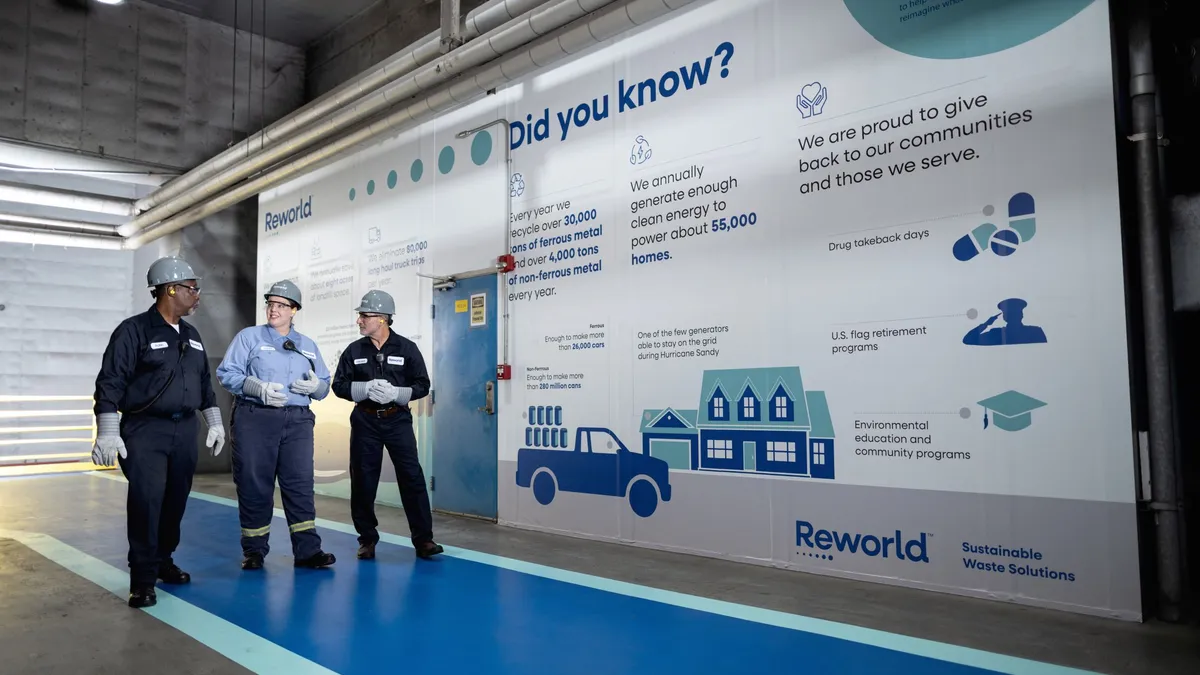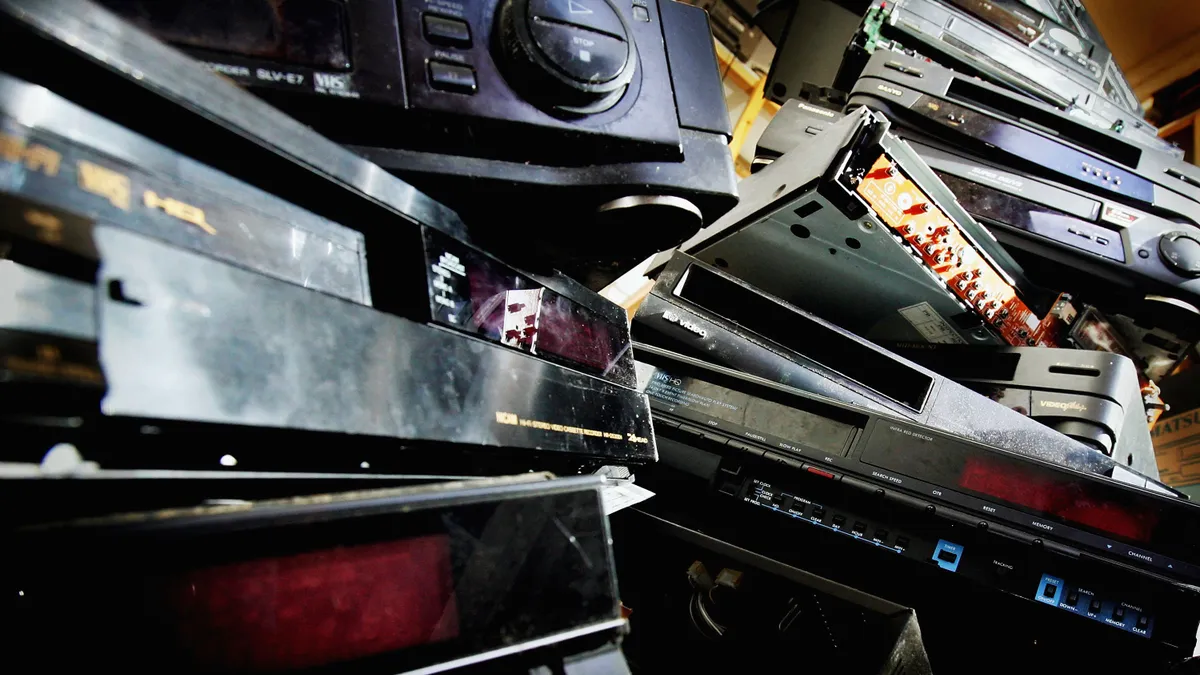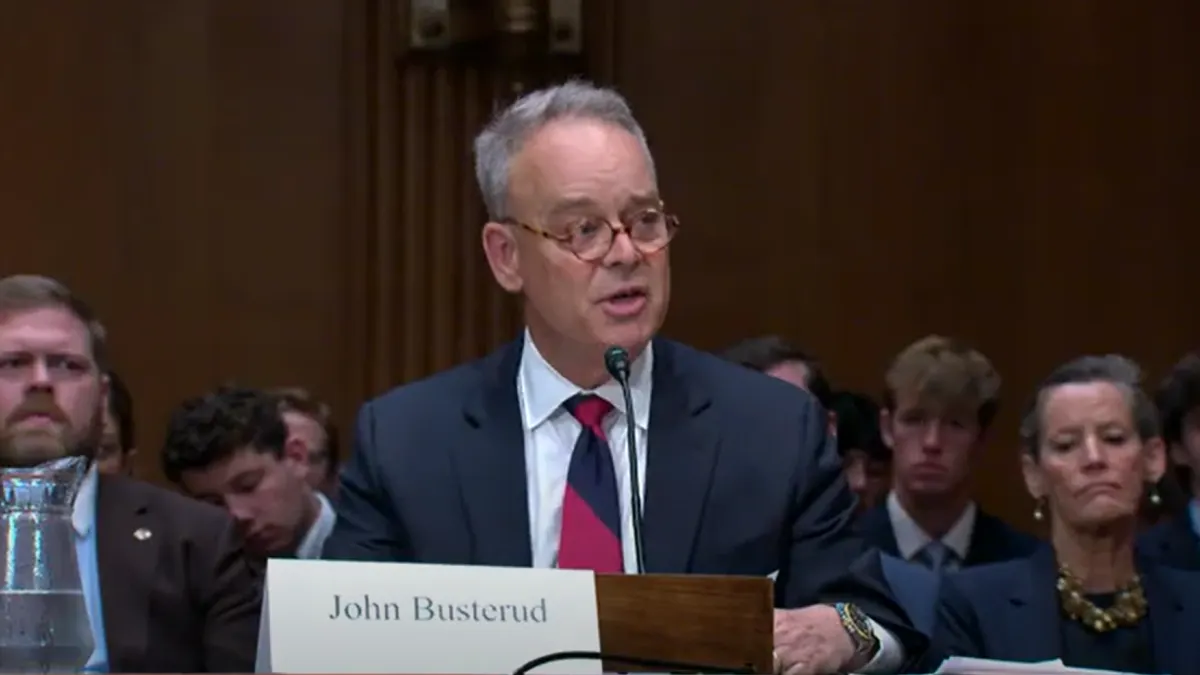UPDATE: May 22, 2025: House Republicans passed the budget reconciliation bill 215-214 on Thursday. Lawmakers have sent the bill to the Senate, where it’s likely to face proposed changes.
Republicans in the U.S. House of Representatives have laid out their initial proposed budget, and they are planning to claw back much of the Inflation Reduction Act of 2022. For the waste and recycling industry, the changes would represent a loss of federal support for certain emissions-related activities but may provide a boost for alternative fuel production.
Of particular note to the industry are proposals from the House Energy and Commerce Committee and the House Ways and Means Committee. The former plans to rescind unobligated funds — funds not already spent or contracted out to third parties — from a variety of grant and financing programs created or expanded by the IRA. The latter plans to roll back several tax credits created or altered by the IRA, while extending the Clean Fuel Production Tax Credit.
House Republicans had previously been tasked with finding savings in the budget through the reconciliation process to fund President Trump's agenda, which includes roughly $1.5 trillion in tax cuts. Cutting IRA programs, as well as other government programs like medicaid and food stamps, would support that goal.
The House now will deliberate and potentially alter provisions. House Speaker Mike Johnson has said he wants the budget proposal through his chamber by Memorial Day. Republicans are pushing to get a budget on Trump’s desk by July 4.
Grant programs
The Energy and Commerce Committee proposal rescinds funding from a wide array of programs that could have lowered emissions from the waste and recycling industry and supported new infrastructure. That includes programs funded by the U.S. Department of Energy and the U.S. EPA.
In particular, the proposal would rescind all unobligated funds to the DOE's Loan Program Office, which received hundreds of billions of dollars from the IRA to assist in the development of alternative energy infrastructure. The office reached conditional commitments to fund several large recycling projects under the Biden administration, though some of those commitments have since fallen through.
On the EPA side, the budget proposal would also pull back funds from several programs designed to reduce greenhouse gas emissions and promote environmental justice. Among those programs, the proposal targets a $5 million initiative to standardize and increase transparency around corporate reporting of greenhouse gas emissions reductions.
It would also rescind unused funds from programs intended to assist state, tribal and local governments. That includes the Clean Heavy-Duty Vehicles program created by the IRA, which appropriated hundreds of millions of dollars to support local fleet operators transitioning to Class 6 or Class 7 zero-emission vehicles. In December, the Biden administration had announced tentative deals totaling $735 million, including one to finance the purchase of zero-emission refuse trucks in North Texas, among other applications.
A variety of other Clean Air Act program allocations were cut, including those that would have funded air monitoring, diesel emissions reductions and data collection on biofuels.
In line with EPA Administrator Lee Zeldin's plans to slash his agency's workforce, the proposal would cut a $40 million initiative to hire and train more employees to speed up permitting. The Energy and Commerce committee's summary of changes said this funding "conflict[s] with EPA’s initiatives to create a more effective and efficient workforce, along with President Trump’s executive orders to reduce government spending and waste."
Tax credits
For the biogas world, the Ways and Means Committee proposal contains both positives and negatives. The committee's first draft changes several tax credits that the industry could use, and would end transferability in 2028. That means companies soon would not be able to sell the tax credits they generate to tax-burdened entities, a mechanism that has allowed some RNG developers to generate multimillion-dollar deals.
The proposal also sets stringent foreign sourcing requirements for all credits. After enactment, the new rule would forbid a project from receiving a credit if it received any "material assistance" from certain countries like China. The language is broad enough that any China-based entity providing materials could trigger the clause, presenting a challenge for developers looking to source cheap parts.
The Clean Electricity Production Tax Credit would also be phased out by 2032. Previously, the Inflation Reduction Act would have allowed it to continue until greenhouse gas emission levels from electricity production fell to 25% of 2022 levels.
On the other hand, the proposal extends the Clean Fuel Production Tax Credit, one of the key IRA provisions for the biogas industry. Eligible entities could claim it through the end of 2031 rather than 2027.
The proposal would make other tweaks to the fuel credit, like breaking out emissions rates from different kinds of animal manure to calculate an anaerobic digester's credit opportunity. It would also require eligible fuels to be produced from a feedstock grown in the U.S., Canada or Mexico.
The Clean Hydrogen Production Tax Credit, which would have supported the biogas industry’s emerging interest in turning gas into hydrogen, would now be phased out by the end of this year.



